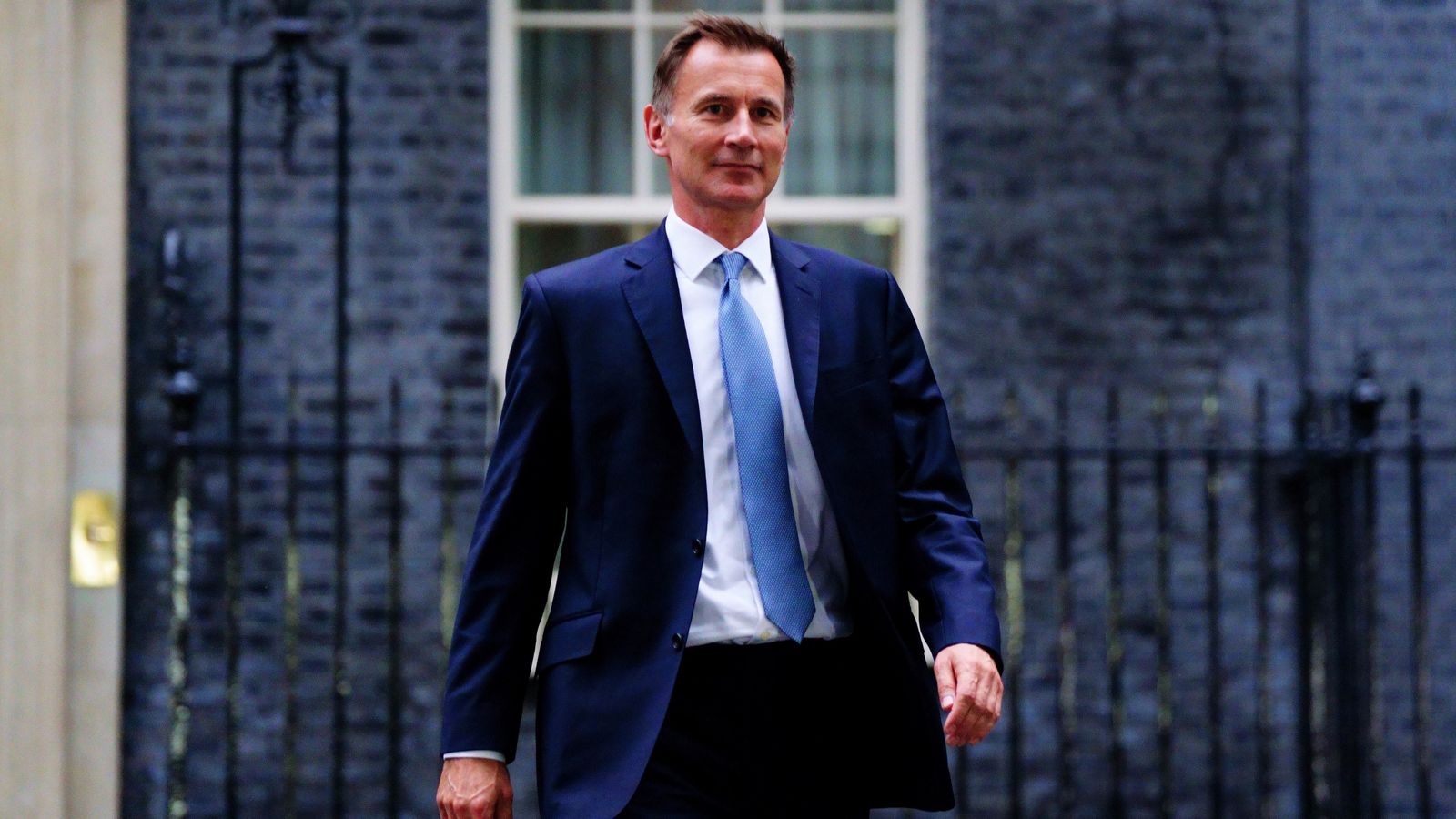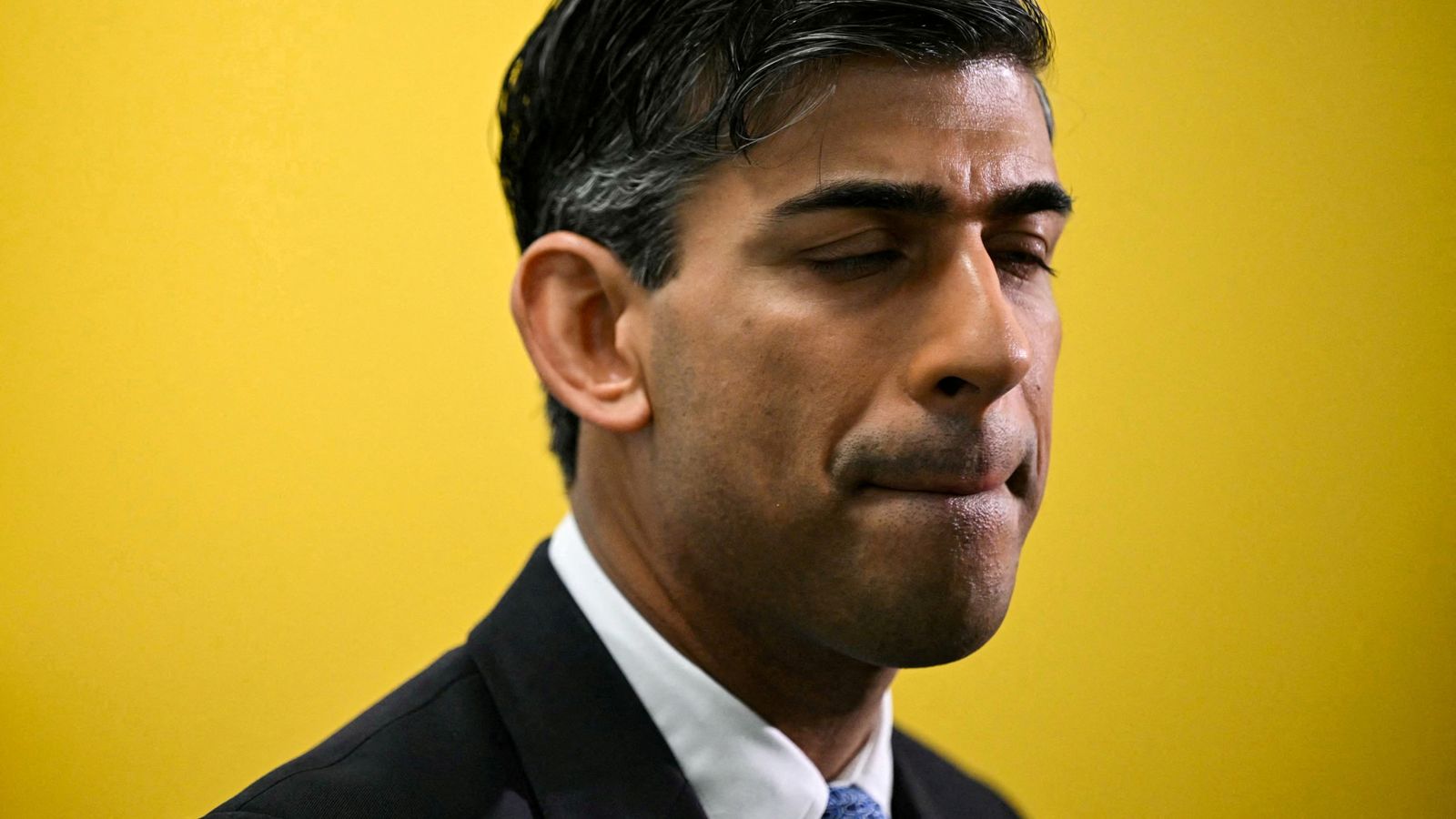The government will “look at all the data we have available” on Monday before making a decision on post-Christmas coronavirus restrictions in England, a senior government adviser has said.
Dr Jenny Harries said any move on COVID rules next week will not be based on “simply what the epidemiology is saying”, but also “how it’s impacting society”.
“So for example, we have very high rates of individuals off sick – we know that particularly in London, around one in 35 have currently got Omicron,” the head of the UK Health Security Agency (UKHSA) told BBC Radio 4’s Today programme.
“Now that’s having an impact on the workforce. So these are not simply about hospitalisation rates.”
Follow live coronavirus updates
She described UKHSA data on reduced chance of hospitalisation from Omicron as a “glimmer of Christmas hope”.
But she warned: “It definitely isn’t yet at the point where we could downgrade that serious threat.”
The most recent data suggests that someone with Omicron is between 31% and 45% less likely to attend A&E and 50% to 70% less likely to be admitted to hospital than an individual with the Delta variant.
Dr Harries cautioned that although there are currently no “significant rises” in intensive care or ventilation beds for COVID patients, “a lot of the people who’ve been infected to date are younger people”.
Follow the Daily podcast on Apple Podcasts, Google Podcasts, Spotify, Spreaker
Therefore more data on the effects on the elderly would be required to have the fuller picture, she said.
“What we have got now is a really fine balance between something that looks like a lower risk of hospitalisation – which is great news – but equally a highly transmissible variant and one that we know evades some of our immune defences, so it is a very balanced position.”
On Thursday, Health Secretary Sajid Javid confirmed there would be no announcements on restrictions in England until 27 December.
New measures are being introduced in Scotland and Wales, however.
How do COVID rules compare across the four nations?
Elsewhere, the head of the Royal College of Nursing (RCN) said that the NHS is facing a “very, very depleted workforce” and wants ministers to take action.
Pat Cullen told BBC Breakfast: “If that means tighter measures, that’s for political leaders to decide based on the scientific evidence.
“They [NHS staff] would like to see political leaders making decisions that will support the health service and them to be able to do the job that they want to do and be able to care for their patients safely.”
Chief of NHS Providers, Chis Hopson, told Sky News on Friday that hospitals are “very, very busy” and the NHS is under “huge amounts of pressure”.
Meanwhile the government’s chief scientific adviser Sir Patrick Vallance told The Times that it is not the role of members of the Scientific Advisory Group for Emergencies (SAGE) to “take a particular policy stance or to either spread gloom or give Panglossian optimism”.
His comments appeared to be responding to criticism of the modelling sub-group of SAGE, SPI-M, over projections it released that Omicron hospital admissions could reach 10,000 a day without further lockdown measures.
He suggested that critics need to “consider all the data in the round, not only those parts that fit an argument while ignoring the rest”, adding that science is “self-correcting” and no scientist has a “monopoly of wisdom on what happens next”.




